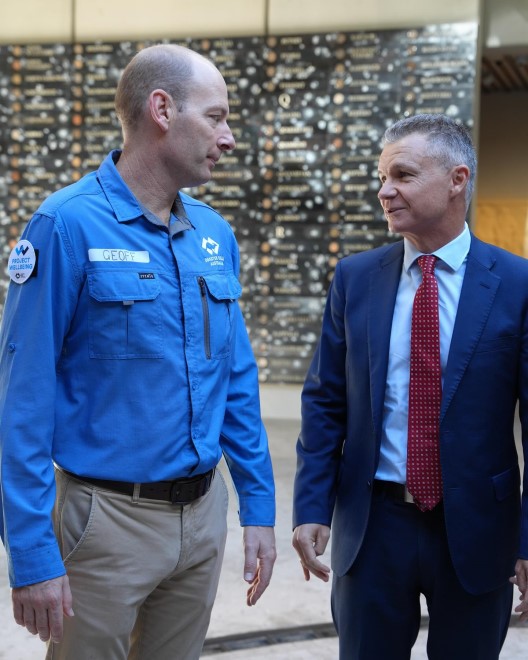People who volunteer are happier

A message from Disaster Relief Australia
It’s official: volunteering with Disaster Relief Australia (DRA) is good for mental health and wellbeing! It also saves lives. While we already knew this, we wanted to test the theory and put some science behind it.
After two years of research with 786 DRA volunteers through the Project Wellbeing Study, we now have evidence that proves that what we do, and how we do it, makes people happier. Now it’s time to share the findings far and wide.
Since DRA’s inception, our volunteers have told us that service makes them happier – that helping others through volunteering gives them a sense of purpose and, in some cases, has saved their lives. But we wanted to know more, so we launched Project Wellbeing in 2022 to scientifically validate the benefits of DRA’s volunteering program and identify opportunities for enhancement.
In collaboration with the South Australian Health and Medical Research Institute (SAHMRI) and funded by Movember Foundation, DRA asked its volunteers to participate in a wellbeing pulse check survey or interview at key points during the training and deployment portions of their volunteering journey. SAHMRI did this regularly over 12 months using specific and carefully crafted questions designed to give valuable insight into the volunteer experience.
Through the collection of nearly 700,000 data points they learned that, on average, DRA volunteers showed significant improvements in mental wellbeing which were sustained over the long term. Volunteering with DRA had the greatest impact on vulnerable volunteers. It made them feel useful and helped them regain a sense of purpose, often when they felt they had few options left. Ultimately, it reduced the risk of suicide for many.
At DRA we do things differently.
We discovered our volunteering activities support wellbeing, in turn leading to improved mental health outcomes through:
- active volunteering – being physically active and helping others in times of need
- connection – socialising with likeminded people and connecting to positive role models
- development – formal and informal upskilling leading to improved self-worth
- recognition – experiences that provide a sense of importance and purpose
- supportive conversations – allowing wellbeing officers and volunteers with a high wellbeing literacy to detect early warning signs.
Taken together, this is why DRA’s volunteering model works so well. Visit the DRA website for full details about the project.
Image: Former Assistant Minister Matt Thistlethwaite with former DRA CEO Geoff Evans at the report’s launch.